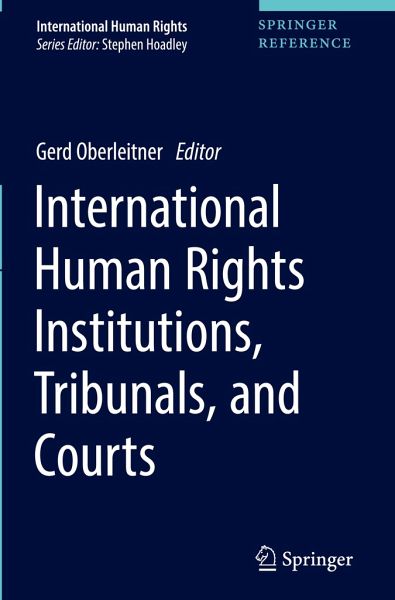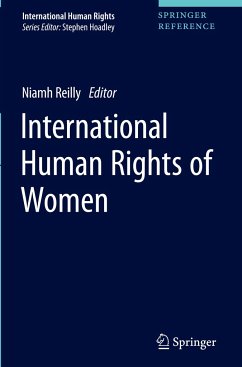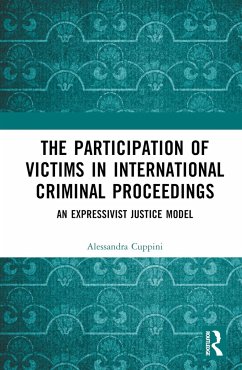
International Human Rights Institutions, Tribunals, and Courts
Versandkostenfrei!
Versandfertig in 6-10 Tagen
453,99 €
inkl. MwSt.

PAYBACK Punkte
227 °P sammeln!
This book introduces readers to the major human rights institutions, courts, and tribunals and critically assesses their legacy as well as the promise they hold for realizing human rights globally, and the challenges they face in doing so. It traces the rationale of setting up international institutions, courts, and tribunals with the aim of ensuring respect for international human rights law and presents their historic development, and critically analyzes their contribution to the promotion and protection of human rights. At the same time, it asks which promises old and new (and envisaged) hu...
This book introduces readers to the major human rights institutions, courts, and tribunals and critically assesses their legacy as well as the promise they hold for realizing human rights globally, and the challenges they face in doing so. It traces the rationale of setting up international institutions, courts, and tribunals with the aim of ensuring respect for international human rights law and presents their historic development, and critically analyzes their contribution to the promotion and protection of human rights. At the same time, it asks which promises old and new (and envisaged) human rights institutions hold for safeguarding human rights in light of continuing violations and recent global trends in human rights and politics.
The first section presents institutions created within the framework of the United Nations. The second part of the volume assesses how international criminal tribunals have reframed human rights violations as individual criminal acts. The third part of the volume is devoted to established and emerging regional human rights bodies and courts around the world.
The first section presents institutions created within the framework of the United Nations. The second part of the volume assesses how international criminal tribunals have reframed human rights violations as individual criminal acts. The third part of the volume is devoted to established and emerging regional human rights bodies and courts around the world.












